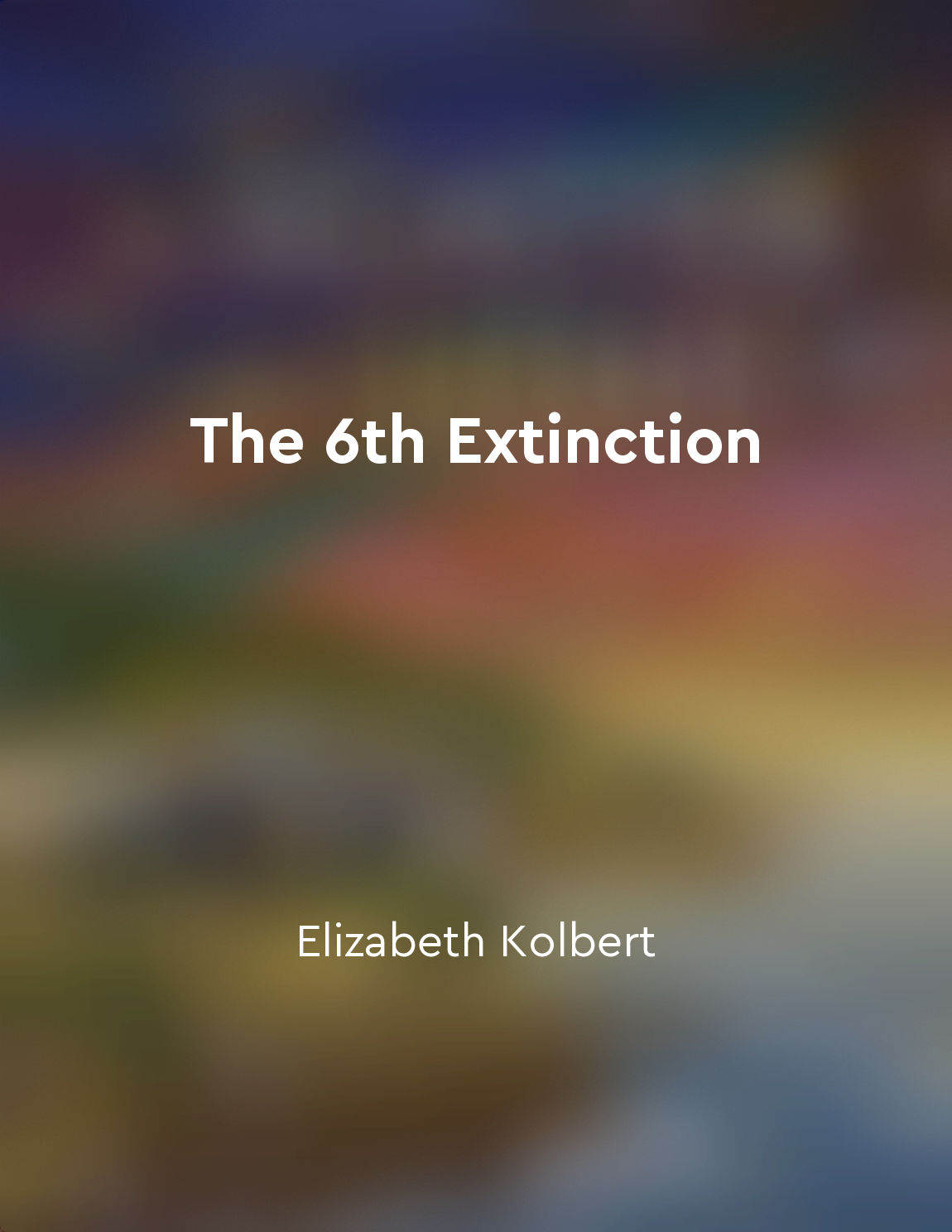Audio available in app
Biodiversity is decreasing rapidly on Earth from "summary" of The 6th Extinction by Elizabeth Kolbert
The world is losing species at an alarming rate, a phenomenon that scientists refer to as the "sixth extinction." The rate of extinction today is estimated to be 1,000 times higher than the natural background rate. This rapid loss of biodiversity is driven by various factors, including habitat destruction, climate change, pollution, and overexploitation. The consequences of this decline in biodiversity are far-reaching and profound. As species disappear, ecosystems become less resilient and more vulnerable to disturbances. This loss of biodiversity can have cascading effects, leading to the collapse of entire ecosystems. In addition, many species play crucial roles in ecosystem functioning, such as pollination, seed dispersal, and nutrient cycling. The disappearance of these species can disrupt these essential processes, leading to further ecological imbalances. Furthermore, the loss of biodiversity can have direct impacts on human societies. Many communities rely on biodiversity for food, medicine, and other resources. The decline of certain species can threaten the livelihoods and well-being of these communities. In addition, biodiversity loss can also impact global food security and public health. For example, the loss of pollinators, such as bees and butterflies, can reduce crop yields and lead to food shortages.- But much more needs to be done. Conservation efforts, such as protected areas and species reintroductions, are crucial for preserving species and habitats. In addition, addressing the root causes of biodiversity loss, such as habitat destruction and climate change, is essential for long-term conservation success. Ultimately, protecting biodiversity is not just about saving individual species, but about safeguarding the web of life that sustains us all.
Similar Posts

Empower women in climate action
Women play a crucial role in climate action. They are often the most affected by the impacts of climate change, yet they are al...
Nature's ability to bounce back
Nature possesses an inherent resilience that allows it to recover from various disturbances. This ability to bounce back is a t...

The extinction crisis requires urgent action from policymakers and individuals
The current situation we find ourselves in, as detailed in 'The 6th Extinction', is dire and urgent. The extinction crisis is n...
Urbanization alters ecosystems
Urbanization transforms the natural world in profound ways. As cities expand, they swallow up surrounding ecosystems, replacing...
Humans share a deep connection with the planet
The idea that humans are deeply connected to the planet is not just some new age philosophy or environmentalist sentiment. It i...

The extinction of one species can lead to the extinction of others
Elizabeth Kolbert's 'The 6th Extinction' delves into the interconnectedness of species within ecosystems and the potential cons...
Animals have adapted to survive in their habitats
In the vast tapestry of life on Earth, each species is intricately woven into the fabric of its environment. Over millions of y...
Evaluation
Evaluation is a critical component of our efforts to conserve Washington's natural heritage. It involves the systematic assessm...
The future of our planet is in our hands
The fate of the living planet lies in the choices we make today. As we continue to exploit natural resources and alter ecosyste...
Some pollinators have unique behaviors and adaptations for collecting nectar
Certain pollinators have developed specialized behaviors and adaptations to efficiently collect nectar from flowers. These uniq...

